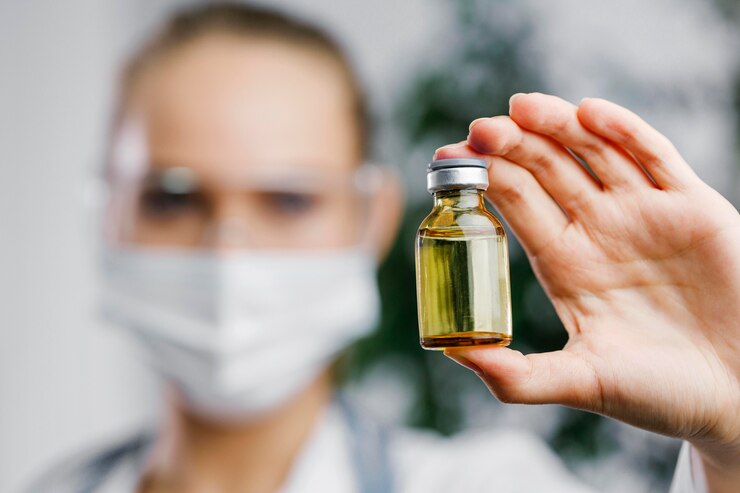While anecdotal evidence and early research suggest potential benefits, it’s crucial to understand CBD oil is not a cure for cancer.
Its interaction with the human body is complex, and research on its specific effects in the context of cancer is still ongoing. This blog aims to provide a factual and balanced perspective on CBD oil and cancer, without promoting its use as a treatment.
What is CBD Oil?
Cannabidiol (CBD) is a naturally occurring compound found in the cannabis plant. Unlike its close cousin, tetrahydrocannabinol (THC), CBD does not produce psychoactive effects, meaning it won’t get you “high.” CBD oil is an extract containing concentrated CBD, often diluted with carrier oils like MCT coconut oil.
Important Points to Consider
- No conclusive evidence: As of today, there is no conclusive scientific evidence to support the claim that CBD oil can cure, treat, or prevent cancer. Extensive research is needed before definitive conclusions can be drawn.
- Potential for side effects: While generally considered safe, CBD oil can interact with certain medications and may cause side effects like drowsiness, dry mouth, and fatigue.
- Regulation and quality control: The market for CBD products is largely unregulated, leading to concerns about quality and consistency. It’s essential to choose high-quality, lab-tested CBD oil from reputable sources.
- Consult your doctor: It’s absolutely crucial to consult your doctor before considering using CBD oil, especially if you’re undergoing cancer treatment or have any underlying health conditions.
Potential Benefits of CBD for Cancer Patients
Despite the lack of conclusive evidence on its effectiveness in treating cancer itself, some research suggests CBD may help manage certain symptoms and side effects associated with the disease and its treatment, including:
- Pain relief: CBD may possess anti-inflammatory properties which could potentially help alleviate pain associated with cancer or its treatment.
- Nausea and vomiting: Studies suggest that CBD might offer some relief from nausea and vomiting induced by chemotherapy, but the evidence is still not definitive.
- Anxiety and depression: CBD’s potential to interact with the body’s endocannabinoid system could offer benefits in managing anxiety and depression, common side effects experienced by many cancer patients.
- Sleep issues: Preliminary research suggests CBD may help improve sleep quality, which can be disrupted by the disease or its treatment.
It is crucial to emphasize that these potential benefits are based on limited research, and the evidence is not yet conclusive. More research is necessary to fully understand the potential of CBD oil in managing cancer symptoms and side effects.
Safe and Responsible Use of CBD Oil
If, after discussing with your doctor and understanding the limitations, you choose to explore CBD oil, it’s crucial to do so responsibly and safely:
- Consult your doctor: This is the most important step. Discuss your specific situation and potential risks and benefits with your doctor before using CBD oil.
- Choose high-quality products: Look for lab-tested CBD oil from reputable sources. Ensure the product clearly states its CBD content and is free of contaminants.
- Start with a low dose and gradually increase: This allows you to assess your body’s response and avoid potential side effects.
- Be mindful of interactions: CBD oil may interact with certain medications, so it’s crucial to inform your doctor about all medications you’re taking.
Remember
- CBD oil is not a replacement for conventional cancer treatment. It’s vital to continue following your doctor’s prescribed treatment plan.
- Do not use CBD oil as a self-treatment option. Always consult your doctor first.
Conclusion
While the research into CBD and cancer is ongoing, it’s important to maintain a realistic and evidence-based perspective. There is currently no scientific evidence to support claims that CBD oil can cure or treat cancer. However, some research suggests potential benefits in managing specific symptoms and side effects associated with the disease and its treatment.
Always prioritize the advice of your doctor and approach CBD oil with caution and informed understanding.

